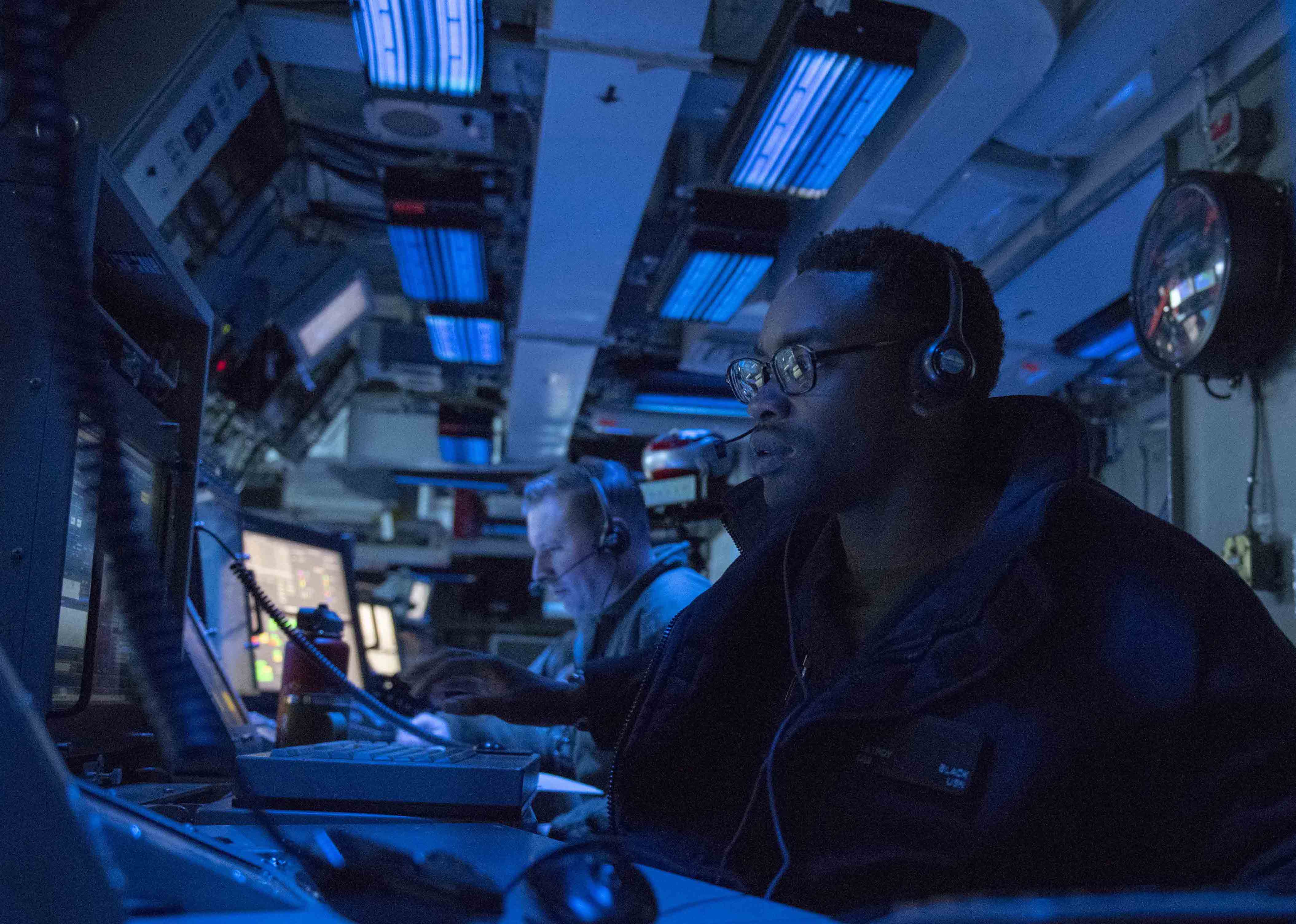
WASHINGTON, D.C. – The Navy is grappling with how to securely share the vast amounts of data ship designers, operators and sustainers collect, a panel of engineers said Wednesday.
Shipyards have the design systems they use to transmit plans from engineers to the shipbuilders. Once delivered, modern ships, submarines and even aircraft generate tremendous amounts of data gauging their performance. The Navy has more data than it knows what to do with, but Rear Adm. Lorin Selby wants to change this.
“The problem we have is we don’t do a great job of linking those together,” Selby said of the various data points. “That’s what I’m driving for trying to link those together.”
Selby, the chief engineer and deputy commander for ship design, integration and naval engineer at the Naval Sea Systems Command, was speaking as part of a panel discussing how the Navy and shipbuilding industry can use digital plans at the American Society of Naval Engineers’ annual Technology, Systems & Ship symposium.
Selby was joined by Rear Adm. Eric Ver Hage, the commander of the Naval Surface Warfare Center and Naval Undersea Warfare Center, and Zac Staples, a retired commander and current chief executive of Austin, Texas,-based maritime analytics firm FATHOM5. Staples’ final tour in the Navy was the director of the Center for Cyber Warfare at the Naval Postgraduate School.
“Today, we know the liability of many of our systems. We know the ship loadout. We know the type of baseline the ships have. We know the performance of tactical action officers and other key watchstanders when they’re in the basic training cycle. We know the proficiency of the strike group when they go to sea,” Ver Hage said. “You have all this data; the problem is, we put missiles on ships, but the combat systems can’t unlock all the capability that missile has in some instances,” he said, referring the possibility communications between ships and missiles could improve targeting.
When quantum computing is developed, the ability to process this massive amount of data will become much easier, Selby said. Quantum computing is still being researched, with several nations trying to develop a way to tackle large data sets quickly, Selby explained. Within a year or two of mastering quantum computing, he predicts everyone will be able to use quantum computing. For the U.S. to have a decisive quantum computing edge, Selby said requires being ready now.
“The key to being the one who can actually lever that technology and really take a huge leap forward in this century is going to be the nation that lays the foundation to be able to lever the capabilities of quantum with a software delivery mechanism,” Selby said.
However, as the ability to analyze data speeds up, the importance of protecting this data also grows.
“If we’re going to build capabilities in the era of great power competition, we have to assume our adversaries are trying to steal them – because they’re trying to steal them,” Staples said. “The exact copy Chinese joint strike fighter is a good indication that whatever our shipboard capabilities might go for will be equally targeted.”
The current secure method of transferring data classified up to the secret level is over the Secret Internet Protocol Router Network (SIPRNet). However, SIPRNet has limitations, such as the expense of operating the network and creating secure terminals so everyone has access to a SIPRNet terminal to send and receive classified secret information.
A cloud-based data vault could prove to be a good solution. Under such a program, access can be restricted, Staples said. Vault monitors will also know which adversaries are denied access to the valuable data being stored.
“When you think about encrypting data, there’s probably a more efficient way to do that than on SIPRNet,” Staples said.





